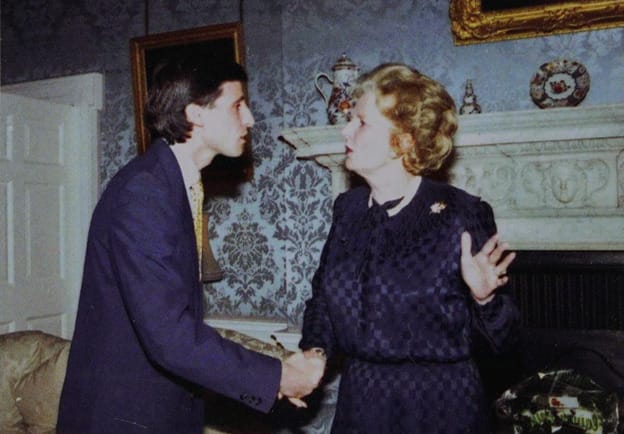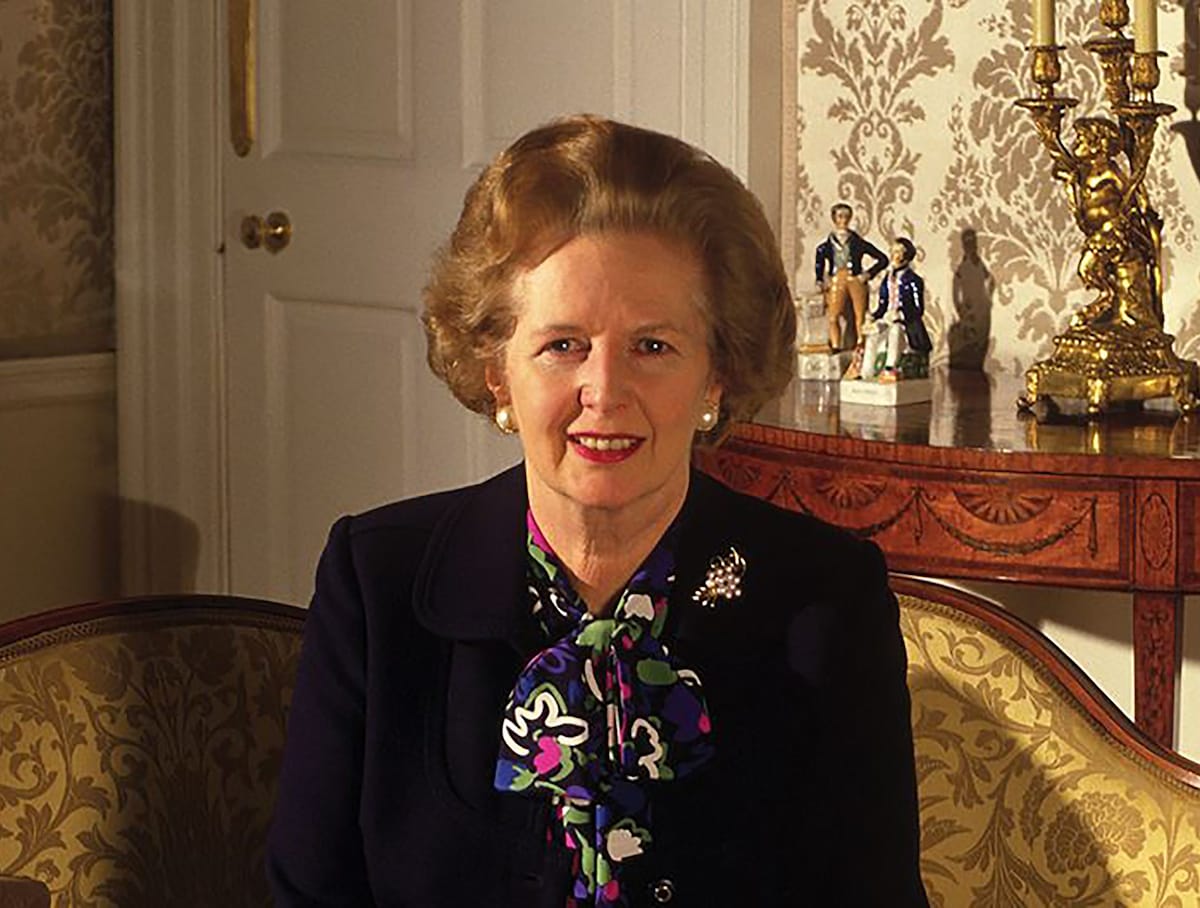The Russian media often mentions the phrase with which the “Iron Lady” allegedly addressed the British athlete, who went to the Games in Moscow in a neutral status, against the wishes of the country’s leadership. We checked whether this attribution is correct.
In November 2023, ex-captain of the Russian national football team Andrei Arshavin in an interview with the newspaper "Sport Express» touched upon the topic of admitting Russian athletes to international competitions without state symbols. He recalled a story about how British athletes boycotted the Moscow Olympics, but a certain runner still went to the USSR as a neutral and won a gold medal. Congratulating him after this, Prime Minister Margaret Thatcher allegedly said: “I despise you as Prime Minister, but as an Englishwoman I was rooting for you. Well done". IN 2021, 2022 And 2023 years, this episode was mentioned by Olympic champion and State Duma deputy Svetlana Zhurova. In her version, Thatcher used the verbs “condemn” and “congratulations” and addressed several athletes at once. In the latter case, Zhurova even named one of the Olympians, track and field athlete Sebastian Coe. The latter was also mentioned in connection with this quote by the editor-in-chief of the newspaper “Soviet Sport” Nikolay Yaremenko and commentator Dmitry Guberniev.
At the end of 1979, Soviet troops launched hostilities on the territory of Afghanistan. This decision had a negative impact on the international position of the USSR - the country found itself in partial isolation. In particular, on the initiative of US President Jimmy Carter, 62 countries boycotted The XXII Summer Olympic Games, held in Moscow next year.
The boycott partially affected Great Britain team. Prime Minister of the United Kingdom Margaret Thatcher stated: “It would be wrong if people and countries who condemn aggression jointly ensured the Soviet Union the success it strives for.” The government has refused any support for its athletes, and all expenses are borne by itself took British Olympic Association. A serious campaign was launched in the country against the delegation’s trip to Moscow, and it was Thatcher and his inner circle, like showed papers published later was the main driving force behind this opposition. One of the targets of pressure from politicians was Sebastian Coe - later a member of the British Parliament and an international sports functionary, and at that time a world record holder in middle-distance running. Members of the British government contacted his father and manager and asked him to convince his son to refuse to participate in the Moscow Olympics. According to memories Coe, someone painted a giant swastika on their garage door back in the day. Another athlete, sprinter Alan Wells, said in an interview that received from Thatcher's office a letter with a photograph of a dead Afghan girl, hinting at the inadmissibility of participation in the Games. However, two runners and 217 other British athletes went to Moscow, where they won 21 medals. Four track and field athletes (including Sebastian Coe and his eternal competitor Steve Ovett) and one swimmer became champions. For them, instead of “God Save the Queen,” the Olympic anthem was played at the award ceremonies, and all the British performed under the Olympic flag.
Zhurova in one of the interviews claimedthat Thatcher uttered the phrase attributed to her when greeting the Olympians upon their return to their homeland. However, judging by the information available today, there was no official meeting. As James Riordan notes in his research “Great Britain and the 1980 Olympic Games: Victory for Olympism”, the government did not congratulate the athletes on their return at all, the champions did not receive any traditional awards from the state, and the press during the competition days was subject to pressure from above - it was necessary to constantly emphasize the topic of boycotting the Olympics. No greeting upon return doesn't report and Dick Palmer, head of the British delegation in Moscow. Does not contain information about champion moves and is very detailed Margaret Thatcher Foundation archive. The idea of Thatcher as a cheerleader is also questionable - according to messages contemporaries (including Coe), she never liked or understood sports.
When December 31, 1980 Thatcher asked In a radio interview asking why British Olympians were not included in the New Year's list of honorees, she responded:
We very strongly and, I believe, very correctly advised them not to go to Moscow for the Olympics, which, in our opinion, brought great honor to the Soviet Union while it remains in Afghanistan, holding Afghanistan by force, tanks, combat helicopters, destroying people who sincerely fight for the very freedom that our Olympians take for granted. I strongly advised them not to go. I defended and respected their right to decide for themselves - after all, that is what democracy is all about. They decided to exercise their democratic right to go to a country that does not have democratic rights. I respected their point of view. I did not agree with this, and we could not go against the position that we expressed very strongly...
Coe in his rather detailed autobiographies avoids the topic of any congratulations from the authorities addressed to him after winning Olympic gold, just as he does not mention any such conversations with Thatcher. In 1982, the athlete was made gentleman Order of the British Empire, but this award was presented at the royal Buckingham Palace. Later Coe became political like-minded person of Thatcher - he joined the Conservative Party, and in 1992 he was elected to the House of Commons, which the “Iron Lady” left just that year.

“Verified” did not find any evidence of the dissemination of the Prime Minister’s statement in English; in particular, it is not mentioned in any archive Margaret Thatcher Foundation, nor in reputable publications. Verified also contacted Margaret Thatcher Foundation historian and co-author of her memoirs Christopher Collins. He expressed confidence that Margaret Thatcher, at least publicly, did not utter the words attributed to her - all such transcripts are presented on the foundation’s website. Additionally, Collins does not believe Thatcher met British Olympians after their return from Moscow.
In Russian, judging by sources on the Internet, the quote appeared many years after the Moscow Olympics - editor-in-chief of Soviet Sport Nikolai Yaremenko in 2017 was one of the first (if not the first) to tell it in an established formulation. In a conversation with Verified, Yaremenko said that he heard this story in 2016 during the Olympics in Rio de Janeiro personally from Sebastian Coe, at that time the head of the International Association of Athletics Federations (IAAF). It was Coe who played key role in the removal of Russian track and field athletes from the Olympic Games, and the story of Thatcher was used in Russia as a kind of reproach to the sports functionary. At the time of publication of this analysis, Verified was unable to obtain a comment from Coe himself. However, the information provided by Nikolai Yaremenko does not allow us to consider this quote as either unambiguously genuine or unambiguously fictitious.
Cover photo: Flickr
Read on topic:
If you find a spelling or grammatical error, please let us know by highlighting the error text and clicking Ctrl+Enter.






